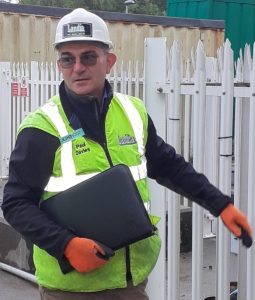According to leading pump and mixer manufacturer, Landia, there is support for the call by a water company boss for organisations to engage with the public more to address unfair criticisms.
However, it believes that there are significant improvements that the industry could implement from within to change negative perceptions that people currently have of the water industry.
Regarding the recent keynote speech made by Yorkshire Water’s chief executive, Nicola Shaw at British Water’s Better Together event, Landia’s Paul Davies said:

”It is true and a shame that the water industry receives so much stick at the moment, especially when plant operators do a fantastic job that is pretty much taken for granted by the public.
“Nicola Shaw is quite right that we as an in industry must be ‘championing the role we play in the environment’ – and much as solar and offshore wind is important, the national consumer media seems completely blind, for example, to great biogas plants such as Scottish Water’s Nigg, and Yorkshire Water’s Energy and Recycling Facility in Huddersfield. Why are we ignored? Is ‘sludge’ simply not a fluffy enough image?”
He added: “The supply chain can play its part in changing criticisms, but to bring us all together, the industry could, for starters, ask important specification questions such as:
- How long will the equipment last?
- What is its environmental impact?
- When the equipment reaches the end of its useful life, can it be reused or recycled?
“At the moment, there isn’t one word on a tender document about the environment or carbon footprint. It is not a good example to keep purchasing the cheapest, sometimes nastiest equipment, especially when some of it contains single-use-plastic. When you specify a large, non-recyclable plastic propeller, are you happy that it will end up being buried in the ground? Is that in keeping with the environmental claims made on your website amid photos of butterflies and sunflowers?”
He continued: “Ask the vast majority of suppliers what it’s like to try to provide genuine innovation to the water industry, or just proven, ‘top quality’, long-lasting equipment, and they will inevitably groan. Often, they’re exhausted by endless, meaningless meetings. Climate emergency doesn’t seem terribly urgent for some in purchasing.
“That said, we in the supply chain are seeing some very encouraging signs of late, with new projects and retrofits. Many of those frustrating barriers are being taken down by young and older engineers with genuine vision, concern for the environment, and a clear picture of equipment’s total cost of ownership.
“So yes, let’s work together, as Yorkshire Water’s Chief Executive said, with ‘better communication and engagement to change the criticisms of public perception’, but let’s get our own house in order too. We need more open-ness, directness and better communication. This will allow operators to be able to do the best possible job in protecting our environment”.



